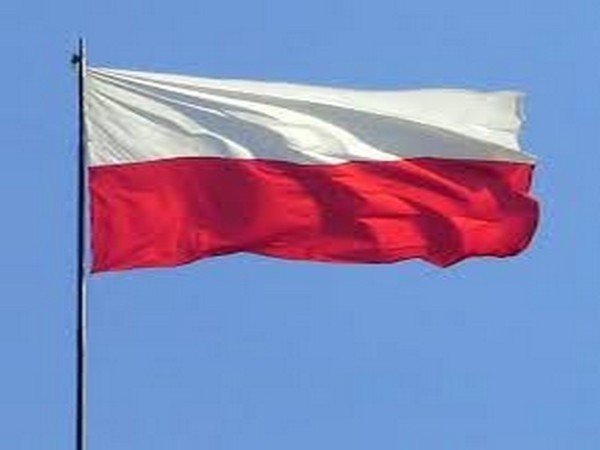News Analysis: Poland's border controls deepen cracks in EU's open-border vision
Jul 12, 2025

Warsaw [Poland], July 12: Poland has temporarily reinstated border controls with Germany and Lithuania, citing a rise in illegal migration and broader security concerns.
While the government frames the move as a necessary response to evolving migration routes, analysts argue that it also reflects growing political tensions at home, and raises fresh questions about the long-term sustainability of the Schengen Area, which has a core principle of open borders.
According to Polish Interior Minister Tomasz Siemoniak, the checks, which will remain in place through Aug. 5, aim to curb illegal migration, particularly along routes shifting through the Baltic states into Germany.
"When we secured the Belarusian border, migrants began entering through Lithuania and Latvia, heading toward Germany," he told the Polish Press Agency. Border officers are conducting random vehicle checks, primarily on buses and vans, at 52 crossings on the German border and 13 on the Lithuanian frontier.
Analysts argue the move is not solely about migration. Domestically in Poland, it follows the ruling coalition's unexpected loss in the June presidential election. The government has faced criticism from the opposition over undocumented migrant returns from Germany, prompting a tougher stance on border control.
Germany, meanwhile, recorded over 7,900 unauthorized border crossings from May through July, with 1,300 of them at the Polish border. Berlin's new asylum rules, enacted after Chancellor Friedrich Merz took office in May, refuse asylum to migrants who have transited through other EU states. The shift has drawn criticism for placing disproportionate burdens on neighboring countries.
German media, including Frankfurter Allgemeine Zeitung, have characterized Poland as a "buffer zone" for migrants turned back at the German border. Polish officials have responded by accusing Berlin of failing to coordinate policy and offloading its responsibilities.
"Both countries are under pressure to show they are in control," said a constitutional law expert at the Polish Academy of Sciences. "But unilateral measures risk turning a shared European challenge into a source of bilateral tension."
In addition, public opinion in both countries leans strongly toward stricter enforcement. A poll by Opinia24 showed broad support for tighter border controls in Poland, with 87 percent of Civic Coalition voters, 74 percent of far-right Confederation supporters, and 67 percent of the ruling Law and Justice (PiS) base. In Germany, the federal government faces growing pressure from the right-wing Alternative for Germany (AfD) party.
The European Union allows temporary internal border controls under exceptional circumstances. However, the increasing frequency of such measures, by France, Austria, and now Poland, has sparked debate about the Schengen Area's durability.
According to Der Spiegel, 11 Schengen states have partially reintroduced internal checks in recent years. "Europe's borderless era is gradually receding," warned Birte Nienaber, a migration expert at the University of Luxembourg, in an interview with Deutsche Welle.
"If internal controls become a political tool rather than a last-resort security measure, the entire Schengen framework could unravel," said Davide Colombi, a migration analyst at the Centre for European Policy Studies in Brussels.
Economic impacts are already being felt. The Chamber of Commerce and Industry of Eastern Germany estimates that 60,000 people cross the Polish-German border daily, including commuters, freight drivers, and shoppers. Even minor delays, 10 to 20 minutes for cars and up to an hour for trucks, can disrupt supply chains and labor mobility.
A European Parliament study estimates that sustained internal checks could cost the EU transport sector up to 320 million euros (374.4 million U.S. dollars) annually. Business leaders warn that peripheral border regions reliant on frictionless movement could suffer the most.
There are also growing concerns about humanitarian and legal consequences. Andreas Rosskopf, head of Germany's federal police union, warned of a "ping-pong effect" in which asylum seekers are bounced repeatedly between countries, causing legal confusion and logistical strain.
"This creates uncertainty for migrants and overburdens already stretched border and judicial systems," Rosskopf said.
Experts have flagged the emergence of "railway refugees", migrants shuttled back and forth by train between EU states without access to fair or timely asylum procedures.
As migration pressures and political polarization rise across the EU, analysts are urging greater coordination to balance national security with the core Schengen principle of open borders.
"Unilateral moves may provide short-term reassurance at home," said Colombi, "but they risk eroding the very foundation of European integration."
Source: Xinhua News Agency









